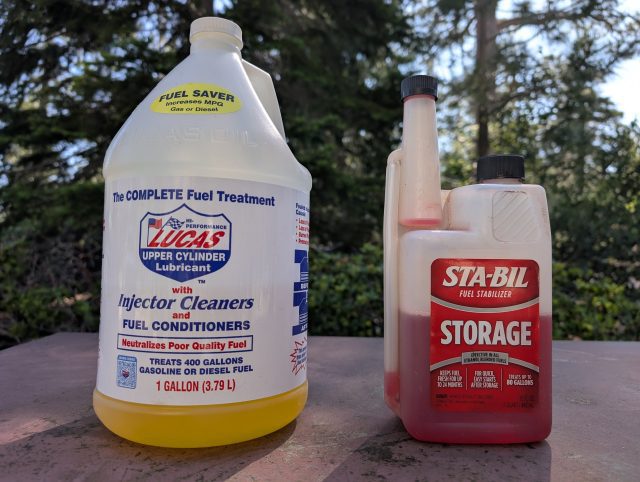Alright, fellas — you’ve been there. You stroll into the auto parts store for a quart of oil or a set of wiper blades, and boom — you’re ambushed by an entire shelf of shiny Engine Oil Additives screaming promises like “Stop engine wear!”, “Boost horsepower!”, and “Turn your beater into a Bugatti!”
Names like Lucas, Seafoam, Marvel Mystery Oil, and STP practically yell at you from the shelves like hypemen for your engine. And you’ve probably wondered, “Do these miracle juices actually do anything… or am I about to drop $15 on glorified snake oil with a cool label?”
Short answer? It depends.
Longer answer? Buckle up.
Modern Engines Aren’t Exactly Begging for Extra Help
Here’s the deal: modern engine oils aren’t the basic sludge our grandfathers dumped into their Fords. They’re high-tech chemical cocktails loaded with detergents, anti-foaming agents, anti-wear additives, and corrosion inhibitors. Essentially, your oil already comes armed, like John Wick, in a bad mood.
Start tossing random extra additives into the mix, and you may mess up that carefully balanced formula. It’s like dumping hot sauce into a perfectly crafted whiskey sour — a bold move, but probably not a smart one.
Lucas, Seafoam, and the Rest of the Gang
Lucas Oil Stabilizer claims to reduce friction, lower heat, and extend engine life. Independent tests show mixed results, and while it might help old high-mileage engines with worn seals, your newer ride running synthetic oil? It doesn’t need the help. In fact, thinner oils are better for those tight modern tolerances.
Seafoam is more of a system cleaner. People pour it in their gas tanks, crankcases, and even straight into the intake to clean out carbon deposits and sludge. If you’ve just resurrected a rusty ‘84 Camaro from a field somewhere, it might be worth a shot. But for your daily driver who sees regular oil changes? It’s like giving a spa day to a perfectly clean labrador.
And then there’s Marvel Mystery Oil, STP, and a dozen others promising similar miracles. Spoiler alert: if you’re already using a good oil and changing it on time, adding these is kinda like wearing a second pair of sunglasses indoors — unnecessary and a little suspect.
When Additives Might Actually Be Worth It
Okay, so are they ever worth it? Sure — if your car’s a bit long in the tooth, burning oil like a 1970s muscle car, or you’re trying to squeeze some extra life out of it before it meets the scrapyard. Some additives may help clean out gunk, reduce oil consumption, or prolong the life of old seals for a little while longer.
But here’s the catch — these additives won’t turn bargain-bin oil into liquid gold. And too much of the wrong stuff can actually break down your oil’s chemistry or screw with performance. Some even fudge lab test results, so don’t fall for those shiny before-and-after graphs.
The Bottom Line
Think of Engine Oil Additives like tools in a garage. The right one, in the right situation? Sure, it can help.
But most of the time? If your engine’s healthy and you’re sticking to proper maintenance with quality oil, you’re better off saving that $15 for a couple gallons of gas or a beer-and-tacos combo.
Because let’s be honest — tacos will always improve your day more than a bottle of mystery Engine Oil Additives.




